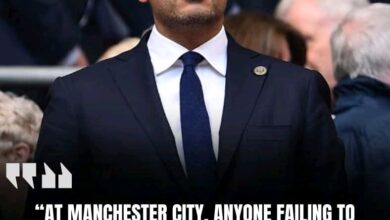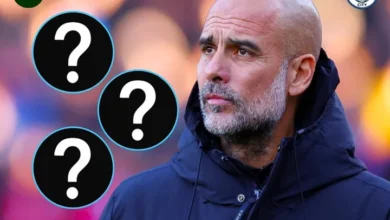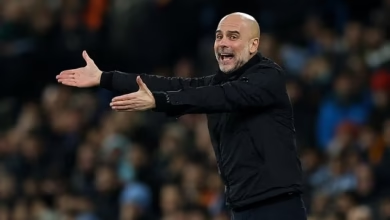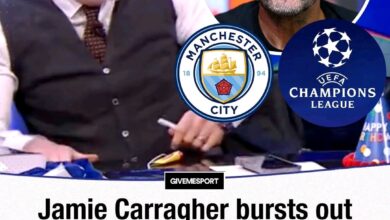Manchester City’s 115 Charges: A Deep Dive into English Football’s Most Controversial Case
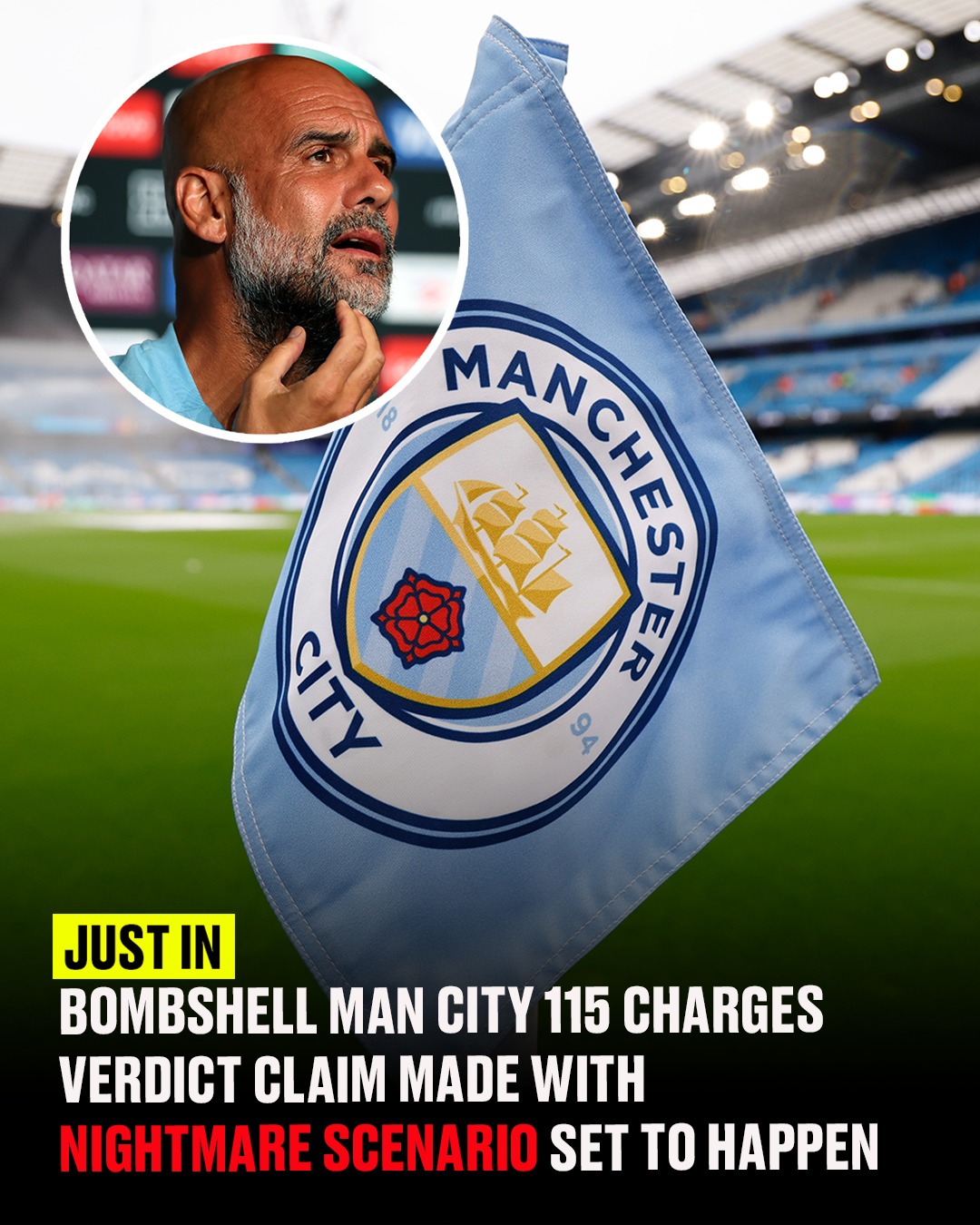
football world continues to hold its breath as one of the most significant legal proceedings in Premier League history unfolds. Manchester City’s battle against 115 charges of financial misconduct has become a defining moment that could reshape the landscape of English football forever. As the wait for an official verdict stretches on, legal experts are beginning to offer insights into the complex case that has captivated fans, pundits, and stakeholders across the globe.
The Genesis of a Controversy
The saga began in earnest back in 2023 when the Premier League took the unprecedented step of charging Manchester City with breaking financial fair play rules on 115 separate occasions. These alleged violations span a critical nine-year period from 2009 to 2018, during which City transformed from Premier League newcomers to global football powerhouses. The charges are not merely numerical; they represent a comprehensive indictment of the club’s financial conduct during their most successful era.
Of the 115 charges, 54 specifically relate to the club’s alleged failure to provide accurate and up-to-date financial information to the Premier League authorities. This represents nearly half of the total charges and suggests a systematic pattern of non-compliance rather than isolated incidents. The remaining charges cover various aspects of financial fair play violations, including potential breaches of profitability and sustainability rules, failure to cooperate with investigations, and other regulatory infractions.
The timeframe in question, 2009-2018, represents City’s golden era of transformation under the ownership of Sheikh Mansour’s City Football Group. During this period, the club established itself as one of Europe’s premier footballing destinations, attracting world-class talent and achieving unprecedented success on the pitch. According to comprehensive data from Transfermarkt, Manchester City invested approximately €1.44 billion in new player acquisitions during this transformative period.
This massive investment bore fruit in spectacular fashion. The club secured three Premier League titles during the charged period – in 2012, 2014, and 2018 – marking their emergence as a dominant force in English football. The 2012 title, won in dramatic fashion with Sergio Aguero’s iconic last-minute goal against Queens Park Rangers, marked City’s first Premier League triumph and the beginning of their modern dynasty. The subsequent titles in 2014 and 2018 solidified their position among England’s elite clubs.
City’s Defiant Response
Since the charges were formally brought against them in 2023, Manchester City have maintained an unwavering stance of innocence. The club has strenuously denied any wrongdoing, presenting what they describe as a “body of irrefutable evidence” as part of their comprehensive defense strategy. This defiant position reflects the club’s confidence in their legal standing and their determination to clear their name in what has become a battle for their reputation and future.
The club’s response has been characterized by a systematic approach to addressing each charge individually. Rather than accepting any culpability or seeking a negotiated settlement, City has chosen to fight the allegations head-on, engaging top-tier legal representation and committing significant resources to their defense. This approach suggests the club believes they have a strong case and are prepared for a protracted legal battle.
City’s defense strategy appears to center on challenging both the substance of the charges and the Premier League’s authority to bring them. The club has consistently argued that they have operated within the rules and that any perceived violations are based on misinterpretation or misunderstanding of their financial arrangements. This comprehensive denial sets the stage for what many expect to be one of the most complex and contentious hearings in sports law history.
The Marathon Hearing Process
The legal proceedings took a significant step forward last year when City’s formal hearing commenced, running across an intensive 12-week period between September and December. This extended timeframe reflects the extraordinary complexity of the case and the vast amount of evidence that needed to be examined by the arbitration panel.
The hearing process involved detailed examination of financial records, witness testimony, expert analysis, and extensive legal arguments from both sides. The Premier League, as the prosecuting body, presented their case for why they believe City violated financial fair play rules, while the club’s legal team systematically challenged each allegation and presented their defense.
The 12-week duration of the hearing is unprecedented in Premier League disciplinary proceedings, highlighting the seriousness of the charges and the comprehensive nature of the evidence being considered. Industry experts had suggested from the outset that the timeframe between the conclusion of the hearing and the final judgment would likely extend for months, given the sheer volume of information that the arbitration panel needed to process and analyze.
This extended deliberation period is not uncommon in complex commercial arbitration cases, where panels must carefully consider multiple perspectives, analyze vast amounts of documentary evidence, and ensure that their final decision is legally sound and properly reasoned. The stakes involved – potentially affecting one of the world’s most valuable football clubs – demand nothing less than the most thorough and careful consideration.
Expert Legal Analysis and Timeline Predictions
Sports lawyer Mo Pasricha recently provided valuable insights into the case during an appearance on talkSPORT, joining presenters Jim White, Simon Jordan, and Danny Murphy for a comprehensive discussion that covered various aspects of football governance, including profitability and sustainability rules (PSR) and their effectiveness in modern football.
When asked the critical question that has been on every football fan’s mind – “Why is it taking so long?” – Pasricha offered a realistic assessment based on his experience with complex sports law cases. His response provided both hope for those seeking resolution and warning about potential further delays.
“I expect the decision before the start of the season,” Pasricha stated, offering the most specific timeline prediction yet from a legal expert. However, he was careful to distinguish between different phases of the legal process, explaining the crucial difference between a decision hearing and a potential sanction hearing.
Pasricha’s analysis highlighted a critical aspect that many observers may not fully appreciate: even if a decision is reached, the process could be significantly extended if either party chooses to appeal. He warned that if one side feels aggrieved by the initial decision, they may “drag it out for as long as possible,” potentially extending the case well into the 2025/26 season.
The lawyer’s detailed explanation of the case’s complexity provided insight into why the process has taken so long. “If you kind of look into the minutiae of this case, 115 plus charges… if we’re instructed on that matter, you’re looking at every single rule breach, you’re building a case, and for which there needs to be a full response on every single point,” he explained.
This systematic approach means that each of the 115 charges must be individually examined, with evidence presented and refuted for every allegation. The arbitration panel must consider comprehensive documentation that could easily run to hundreds of pages, ensuring that due process is followed and that every aspect of the case receives proper consideration.
Pasricha further elaborated on the challenges facing the three-member arbitration panel: “If you’ve got a 100, 150 page document that positions yourself, you as the three panel arbitration panel sitting there, need to make sure you’ve looked at it from both sides and given it the kind of due process it requires.”
Potential Consequences and Their Impact
The verdict in Manchester City’s case could have monumental implications for English football, particularly if the club is found guilty of any significant charges. The potential punishments available to the arbitration panel range from relatively minor sanctions to measures that could fundamentally alter the competitive landscape of the Premier League.
Financial penalties represent the most basic form of punishment, with significant fines being a likely component of any guilty verdict. However, given the scale of the alleged violations and the financial resources available to Manchester City, fines alone may be considered insufficient deterrent by the Premier League and other clubs who feel they have been disadvantaged by any rule violations.
Points deductions represent a more severe form of punishment that could have immediate competitive consequences. Depending on the scale of any points penalty, City could find themselves fighting relegation rather than competing for titles. The precedent set by other high-profile cases, such as Everton’s recent points deduction, suggests that the Premier League is willing to impose significant sporting penalties for financial rule violations.
The most extreme potential outcome would be relegation from the Premier League, either through a massive points deduction or as a direct sanction. Such a punishment would be unprecedented for a club of City’s stature and would send shockwaves through the global football community. The financial implications alone would be staggering, potentially affecting not just the club but the entire Premier League ecosystem.
Beyond the immediate punishments, a guilty verdict could have lasting reputational consequences for Manchester City. The club has invested heavily in building a global brand and establishing itself as one of football’s premier institutions. Serious findings of financial misconduct could undermine these efforts and affect everything from commercial partnerships to player recruitment.
Additional Expert Perspectives
Former Manchester City financial advisor Stefan Borson has also weighed in on the case, providing another professional viewpoint on the likely timeline and potential outcomes. Earlier this month, Borson suggested that a verdict may not be too far away, while warning of a potential situation that would represent a “complete disaster” for all parties involved.
Speaking to talkSPORT, Borson emphasized the commercial pressures affecting the timing of any decision: “We’re now in a zone where, commercially, if there’s any influence at all from the parties – the Premier League or the club – they would want to get that decision out during the close season.”
This observation highlights an important practical consideration: the disruption that an unresolved case creates for all stakeholders in English football. Uncertainty about City’s future affects not just the club itself, but also their competitors, sponsors, broadcast partners, and the Premier League as an organization.
Borson’s insight suggests that there may be external pressures encouraging a swift resolution, even as the legal process demands thoroughness and careful consideration. The balance between these competing demands adds another layer of complexity to an already intricate situation.
The Broader Context of Financial Fair Play
The Manchester City case exists within the broader context of ongoing debates about financial regulation in modern football. The sport has seen unprecedented levels of investment from wealthy owners, leading to concerns about competitive balance and the sustainability of current spending patterns.
Profitability and Sustainability Rules (PSR) were introduced to address these concerns, but their effectiveness and fairness continue to be debated. Critics argue that these rules favor established wealthy clubs while making it difficult for others to invest and compete. Supporters contend that without such regulations, football could face a financial crisis that would damage the sport’s long-term viability.
The City case represents a test of these regulatory frameworks and could influence how financial rules are enforced and modified in the future. A decisive outcome either way could set important precedents for how similar cases are handled and what levels of evidence and punishment are considered appropriate.
Looking Ahead: Implications for English Football
As the football world awaits the arbitration panel’s decision, the implications extend far beyond Manchester City’s immediate future. The case has become a defining moment for the Premier League’s regulatory authority and could influence how financial rules are perceived and enforced across European football.
Other clubs are watching closely, both those who feel they may have been disadvantaged by alleged rule violations and those who may face similar scrutiny in the future. The outcome could affect competitive balance, investment strategies, and the overall governance structure of English football.
The case also highlights the tension between commercial interests and sporting integrity, a balance that will continue to challenge football authorities as the sport becomes increasingly globalized and commercialized. How this balance is struck in the City case could influence similar decisions for years to come.
As legal expert Mo Pasricha noted, while a decision may come before the start of the new season, the potential for appeals means that this saga could continue well into the future. For Manchester City, their fans, and English football as a whole, the wait continues for a resolution that could reshape the sport’s landscape for generations to come.
The 115 charges against Manchester City represent more than just a disciplinary case – they embody the ongoing struggle to maintain competitive integrity in modern football while allowing for investment and growth. Whatever the outcome, this case will be remembered as a pivotal moment in the evolution of football governance and regulation.






